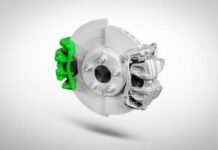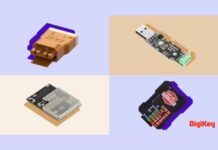The automotive MEMS sensors market is anticipated to secure a valuation of US$ 3.9 billion in 2023 and is predicted to reach US$ 14 billion by 2033. The market is estimated to capture a CAGR of 13.7% during the forecast period.
How the Top Countries Surge the Automotive MEMS Sensors Market?
The top countries are surging the global market through various strategies and factors. Here are several ways these countries contribute to global market growth.
- The United States: The United States is driving the market through its technological advancements and strong automotive industry. The country dominates the global market by collaborating with sensor manufacturers and automotive OEMs. The country is driving by developing advanced driver assistance
- Germany: Germany is a key player in the market due to its advanced automotive industry. German automakers, manufacturers, and suppliers integrate advanced MEMS sensors into vehicles to enhance safety, performance, and efficiency. The country has advanced manufacturing techniques, and strong research and development capabilities drive the market size further.
- Japan: Japan plays a significant role in the market through its strong automotive industry, technological innovation, and focus on quality and reliability. Sensor manufacturers in Japan collaborate closely with automotive OEMs and develop tailored sensor solutions for advanced technologies. Further, Japan’s commitment to technological advancements and miniaturization capabilities also contributes to market growth.
- China: China’s booming automotive industry and growing consumer demand for advanced vehicles drive the market. Automakers in China increasingly integrate MEMS sensors into their vehicles to meet safety regulations and enhance performance. Additionally, the government of China’s push for electric vehicle adoption, and the development of smart transportation infrastructure fuel the demand for MEMS sensors.
- South Korea: South Korea significantly contributes to the market through its renowned electronics and automotive industries. Companies in Korea are involved in developing and producing MEMS sensors for automotive applications. The country’s focus on advanced technologies, such as connected cars, drives the demand for MEMS sensors in the automotive sector.
- France: France has a strong presence in the market due to its automotive manufacturing industry and expertise in sensor technologies. French companies develop and supply MEMS sensors for various automotive applications, including safety, environmental sensing, and vehicle dynamics. France’s commitment to sustainable transportation and government support for research & development also contribute to market growth.
These countries leverage their automotive manufacturing capabilities, technological expertise, collaborations with OEMs, government support, and market demand for advanced automotive technologies to surge the automobile MEMS sensors market. The strategies and factors driving growth may vary based on each country’s strengths and industry focus.
Key Takeaways:
- The market is estimated to secure a CAGR of 13.7% with a valuation of US$ 14 billion by 2033.
- In the historical period, the market secured a valuation of US$ 3.4 billion with a CAGR of 15.7% between 2018 and 2022.
- The United States is leading the global market by securing a valuation of US$ 2.8 billion by 2033.
- During the forecast period, Japan is estimated to register a CAGR of 13.65% in the global market.
- China is capturing a valuation of US$ 3 billion in the global market by 2033.
How are Key Players Adding Value in this Global Market?
The market is highly consolidated by several prominent players globally. They are adopting strategic innovations and collaborations to upsurge the global market. They are focused on developing unique and advanced products to satisfy end users’ demands.
Recent Developments in this Market:
Texas Instruments announced its newly launched products, such as temperature sensors, pressure sensors, and accelerometers, to meet automotive requirements. The company further focuses on low-power sensor solutions for cost-effective and energy-efficient solutions.


















